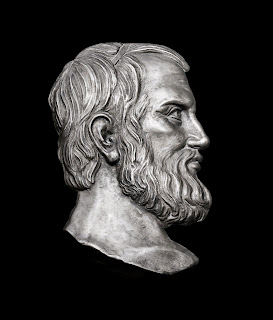The Origins of Ancient Greek Comedy
The ancient Greeks embraced the art of storytelling, and their theatrical traditions evolved from religious rituals and festivals. One such festival was the City Dionysia, where comedic and dramatic performances became an integral part of the festivities. These early comedies were known as ''old comedy'' and were characterised by their satirical and irreverent nature.
The Life and Works of Aristophanes
Aristophanes was born in Athens, and little is known about his personal life. However, his works provide valuable insights into his wit, intelligence, and social commentary. Aristophanes wrote approximately forty plays, of which only eleven have survived. His works include ''The Clouds,'' ''Lysistrata,'' and ''The Birds,'' among others. Each play showcased Aristophanes' unique style of humour, wordplay, and imaginative storytelling. His comedies often targeted political figures and societal norms, challenging the status quo and provoking thought among the audience.
The Themes and Style of Aristophanes' Comedies
Aristophanes' comedies explored a wide range of themes, including war, politics, gender relations, and the flaws of human nature. His plays often featured exaggerated characters and situations to emphasise his satirical points. Aristophanes used clever wordplay, puns, and comedic devices to create a humorous and thought-provoking experience for the audience. His plays were not only entertaining but also served as a platform for social critique, allowing the audience to reflect on the issues of their time.
The Political and Social Commentary in Aristophanes' Plays
Aristophanes plays were filled with political and social commentary, making them an important reflection of the society in which he lived. Through his comedies, Aristophanes criticised the political leaders of his time, mocked, and shed light on the flaws and hypocrisies of Athenian society. His plays often presented alternative visions of how society should be structured, challenging the prevailing power structures and advocating for change. Aristophanes' sharp wit and biting satire made him both loved and feared by those in power.
Notable Plays by Aristophanes and their Impact
Several of Aristophanes' plays have left a lasting impact on the world of theatre. ''Lysistrata,'' for example, explores gender relations and the power of women to bring an end to war through a sex strike. this play not only entertained the audience but also challenged the patriarchal society of ancient Greece. ''The Clouds,'' satirised the intellectual and philosophical trends of the time, mocking the sophists and their influence on Athenian society. These and other plays by Aristophanes continue to be studied and performed today, showcasing his enduring influence on the world of theatre.
Conclusion
Aristophanes, left an indelible mark on the world of theatre. His plays entertained, challenged and provoked thought among audiences, making him a significant figure in ancient Greek society. Aristophanes' exploration of political and societal issues, his clever wordplay, and his innovative comedic style continue to influence comedic writers to this day. His legacy lives on in the work of countless playwrights, satirists, and comedians who have been inspired by his wit commentary. Aristophanes' enduring impact on comedy and satire ensures that his name will be forever synonymous with brilliance and laughter.
If you find this article insightful, please consider sharing it on your social media by clicking the social media icons below. Your support is appreciated!
Relevant Articles About Ancient Theatre
References
YouTube

No comments:
Post a Comment